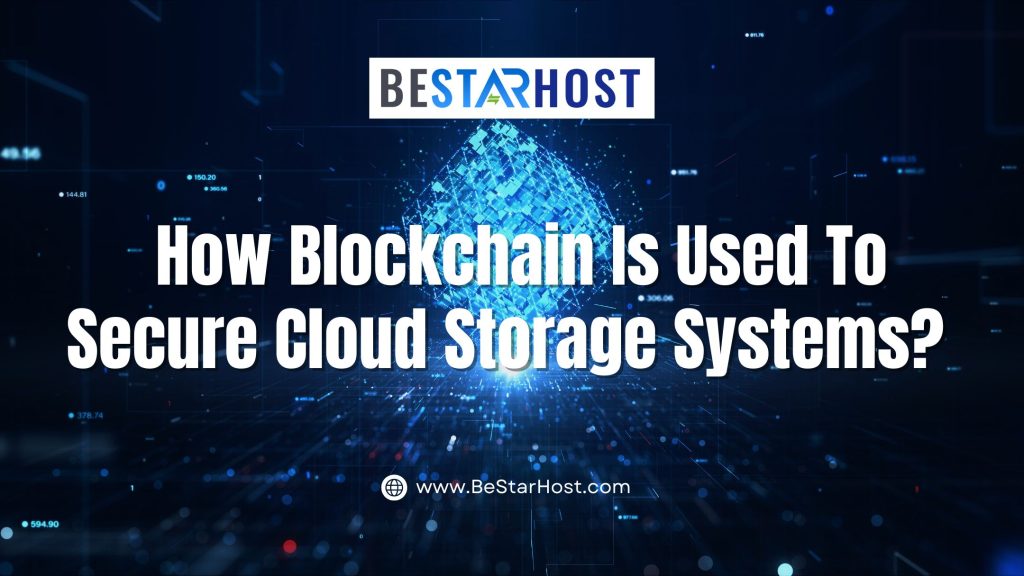 The Evolution of Cloud Storage Security
The Evolution of Cloud Storage Security
As data volumes grow exponentially, ensuring the safety and integrity of cloud-stored information has become a global concern. Traditional cloud providers rely on centralized servers—making them vulnerable to data breaches, insider attacks, and outages. The next evolution in cloud storage security is here: blockchain cloud storage.
By integrating blockchain technology, organizations can now achieve a tamper-proof, transparent, and decentralized approach to data storage. In this article, Let’s explores how secure cloud storage with blockchain works, its advantages, and how decentralized infrastructure is shaping the future of digital data management.
1. What Is Blockchain Cloud Storage?
Blockchain cloud storage combines distributed ledger technology with cloud infrastructure. Unlike traditional systems that store files on centralized servers, blockchain splits, encrypts, and distributes data across multiple nodes in a decentralized network.
This means no single entity controls the data, drastically reducing risks of unauthorized access or manipulation. Each transaction or storage action is verified through consensus mechanisms—ensuring data immutability and trustless security.
2. The Security Limitations of Traditional Cloud Systems
Centralized cloud systems face multiple challenges:
- Single Point of Failure: A server compromise can expose or destroy entire datasets.
- Data Ownership Ambiguity: Providers often hold encryption keys, giving them potential access to user data.
- High Breach Impact: Centralized data centers are prime targets for hackers.
- Compliance Issues: Cross-border storage may violate data privacy laws.
Enter blockchain based storage solutions—a game-changer in how we view and manage cloud security.
3. How Blockchain Enhances Cloud Storage Security
Blockchain improves cloud storage security through five key mechanisms:
a. Decentralization
Data is distributed across multiple nodes instead of a single server. This decentralized cloud storage model eliminates central authority risks and minimizes attack vectors.
b. Encryption
Each data fragment is encrypted before distribution. Only the rightful user with the private key can decrypt and reassemble it, ensuring end-to-end confidentiality.
c. Consensus Verification
Every storage action—upload, modification, or retrieval—is validated via consensus algorithms (like Proof of Storage or Proof of Replication), guaranteeing data authenticity.
d. Immutability
Once data transactions are recorded on the blockchain, they can’t be altered, providing an immutable audit trail ideal for compliance and governance.
e. Tokenization & Incentives
Many blockchain based storage solutions use token systems to reward participants who contribute storage or bandwidth, encouraging decentralization and reliability.
4. Leading Decentralized Cloud Storage Platforms
Several platforms demonstrate how secure cloud storage with blockchain works in real-world environments:
- Storj: Uses node operators worldwide to store encrypted data segments.
- Filecoin: Employs a market-driven approach to decentralized storage using its FIL token.
- Siacoin: Allows users to rent out unused hard drive space through smart contracts.
- Arweave: Specializes in permanent data storage with built-in blockchain verification.
Each of these systems provides unique models of cloud hosting that prioritize privacy, security, and decentralization.
5. Advantages of Blockchain Cloud Storage
- Enhanced Security: Distributed architecture removes single points of failure.
- Transparency: Every action is traceable on the blockchain ledger.
- Reduced Costs: No need for massive centralized data centers.
- Data Ownership: Users retain full control of encryption keys.
- Scalability: Peer-to-peer networks grow organically with user participation.
6. Integrating Blockchain with Traditional Cloud Models
Businesses don’t need to abandon existing infrastructure. Hybrid solutions can integrate decentralized cloud storage alongside traditional cloud setups for sensitive data or backups.
BeStarHost Dedicated Servers can serve as anchor points for hybrid deployments, supporting smart contract execution, node hosting, or private blockchain validation environments.
7. Challenges and the Road Ahead
Despite its promise, blockchain cloud storage faces scalability and regulation challenges. Network latency, storage redundancy, and interoperability with legacy systems are areas of ongoing innovation.
However, as enterprises move toward Web3 and decentralized data ecosystems, secure cloud storage with blockchain will become a cornerstone of digital trust.
The Future of Cloud Security Is Decentralized
Blockchain isn’t just revolutionizing finance—it’s redefining how we store and secure data. By embracing blockchain based storage solutions, organizations can eliminate traditional vulnerabilities, enhance transparency, and ensure full data sovereignty.
To explore hosting environments optimized for blockchain applications, visit BeStarHost.com—your trusted partner for scalable and secure cloud hosting solutions in 2025.
